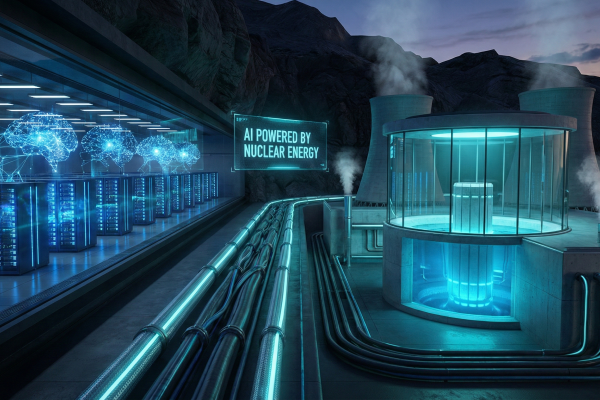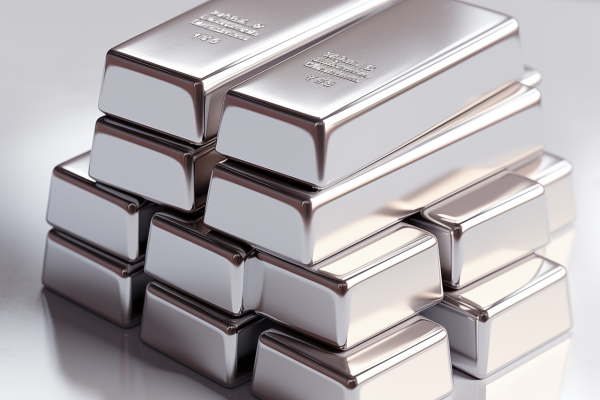July 29th, 2022 | 12:22 CEST
Erin Ventures, Uniper, BASF - How business continues to grow outside Germany
Old hands in the market like BASF are in a strong transformation process. Russia's war of aggression in Ukraine has put the energy supply from gas on the line. But global players like the Ludwigshafen-based company already have a plan B, to the delight of shareholders. The situation is very different at Uniper AG. Here, the great dependence on Russian gas supplies and the expensive world market contracts that the Company had to conclude brought Germany's largest gas supplier to the brink of bankruptcy in recent weeks. The German government is spending EUR 15 billion to keep the Company afloat. At the taxpayer's expense. Erin Ventures shows where it is really worth investing now with the Element Boron.
time to read: 4 minutes
|
Author:
Juliane Zielonka
ISIN:
ERIN VENTURES INC | CA29570H2000 , UNIPER SE NA O.N. | DE000UNSE018 , BASF SE NA O.N. | DE000BASF111
Table of contents:

"[...] Boron is one of the most versatile elements in the whole world! Everyone reading this text regularly uses hundreds of products that depend on boron. [...]" Tim Daniels, CEO, Erin Ventures
Author
Juliane Zielonka
Born in Bielefeld, she studied German, English and psychology. The emergence of the Internet in the early '90s led her from university to training in graphic design and marketing communications. After years of agency work in corporate branding, she switched to publishing and learned her editorial craft at Hubert Burda Media.
Tag cloud
Shares cloud
Erin Ventures - On the wave of success with boron
Boron is a chemical element in the periodic table of elements with the symbol B and atomic number 5. The trivalent, rare semimetal occurs in deposits worth mining and is enriched there. Boron compounds are finding major use in industries that will be the future in the coming years. For example, elemental boron is used for control rods in nuclear reactors, in radiation protective clothing, and in use for radiation shielding on walls. In the defense industry, it is used in armor and bulletproof vests. Boron is also used in the automotive industry for brake and clutch linings. And in agriculture, boron is an important ingredient in crop protection products.
This industrial diversity encourages the Canadian company Erin Ventures, a junior explorer specializing in boron. The boron market is estimated at USD 4 billion per year. Boron is rare and is found in only seven countries worldwide. In the middle of Serbia, the Company is working its way into the boron deposits there. The boron deposit, named "Piskanja", is 100% owned by Erin Ventures, with a measured mineral resource of 1.39 million t (approx. 35.59% B2O3), an Indicated Mineral Resource of 5.48 million t (approx. 34.05% B2O3) and an Inferred Mineral Resource of 284.7 t (approx. 39.59% B2O3).
For planned production, Erin Ventures expects to produce at least 200,000 t/year. That gives them a market penetration of just under 5%. Sales are focused on the European and Asian markets, which account for over 50% of global demand.
Uniper - In the end, the taxpayer pays for the ailing Group
Uniper has been under pressure since June 16 because the Russian Group Gazprom is supplying only 40% of the contractually guaranteed gas volumes. As of a few days ago, it is only 20%. In order to continue supplying customers with the promised volumes, Uniper has to procure replacements on the market - but these are very expensive due to the current situation. So now the German government is stepping in and securing financial support for the struggling company. Chancellor Scholz pledges EUR 15 billion in support of the gas supplier. But investors should not forget one thing: the price for the expensive gas is passed on directly to consumers. Thus, in the end, it is the German taxpayer who pays for the bailout, which has been raised to a high PR level.
Let's not kid ourselves - the dependence on Russian gas poses an immense threat to Germany as a business location. Looking closely, you will also see Europe in a tight spot. That is why a shift of investments to non-European assets or raw materials at the beginning of the production chain makes perfect sense in these crisis-ridden times. With good reason, the Uniper share is sliding down this week.
BASF - China business becomes a success factor
BASF is the world market leader for boron-containing crop protection products. These crop protection products provide micronutrients that are used by plants in small quantities. Micronutrients include zinc, boron, copper, manganese and iron. Consumption of micronutrients in agriculture is increasing rapidly as micronutrient deficiencies in the soil increase, along with the need for food to meet the demands of the growing population.
The global agricultural micronutrient market is expected to grow from USD 5.8 million in 2018 to USD 11 million in 2030, at a CAGR of 7.12% throughout the forecast period, i.e. 2019-30. The EU Commission, on the other hand, wants more renaturation and presents draft law to reduce pesticides by 50%.
BASF is therefore focusing strongly on Expansion in China to remain on track for success. BASF AG's figures for the first half of the year went well. Sales and profits increased by 17% and 11% respectively compared to the previous year. Based on this positive development, the Group has raised its annual targets for 2022. Instead of the previous EUR 74 billion to EUR 77 billion, sales are now expected to be between EUR 86 billion and EUR 89 billion. The earnings forecast (EBIT) has also increased to between EUR 6.8 and 7.2 billion.
As soon as a government puts together rescue packages, the taxpayer pays. Uniper will pass on prices to consumers to ensure its survival. By cutting Gazprom's gas supplies to 20% instead of 40%, it will have to get the coveted energy elsewhere - at the appropriate market rates. A company like junior explorer Erin Ventures is in a better position. There are boron deposits in only seven countries worldwide, and the Canadian company has secured a large area in Serbia for production. Boron is a sought-after element, whether for use in building alternative energy sources such as nuclear power plants or in agriculture for crop protection. Numerous industries need boron to make their products work. BASF AG is also a potential boron customer. With their agricultural division, they are a producer of crop protection products. Thanks to their global locations, the Group can announce growth to its investors through business in China.
Conflict of interest
Pursuant to §85 of the German Securities Trading Act (WpHG), we point out that Apaton Finance GmbH as well as partners, authors or employees of Apaton Finance GmbH (hereinafter referred to as "Relevant Persons") may hold shares or other financial instruments of the aforementioned companies in the future or may bet on rising or falling prices and thus a conflict of interest may arise in the future. The Relevant Persons reserve the right to buy or sell shares or other financial instruments of the Company at any time (hereinafter each a "Transaction"). Transactions may, under certain circumstances, influence the respective price of the shares or other financial instruments of the Company.
In addition, Apaton Finance GmbH is active in the context of the preparation and publication of the reporting in paid contractual relationships.
For this reason, there is a concrete conflict of interest.
The above information on existing conflicts of interest applies to all types and forms of publication used by Apaton Finance GmbH for publications on companies.
Risk notice
Apaton Finance GmbH offers editors, agencies and companies the opportunity to publish commentaries, interviews, summaries, news and the like on news.financial. These contents are exclusively for the information of the readers and do not represent any call to action or recommendations, neither explicitly nor implicitly they are to be understood as an assurance of possible price developments. The contents do not replace individual expert investment advice and do not constitute an offer to sell the discussed share(s) or other financial instruments, nor an invitation to buy or sell such.
The content is expressly not a financial analysis, but a journalistic or advertising text. Readers or users who make investment decisions or carry out transactions on the basis of the information provided here do so entirely at their own risk. No contractual relationship is established between Apaton Finance GmbH and its readers or the users of its offers, as our information only refers to the company and not to the investment decision of the reader or user.
The acquisition of financial instruments involves high risks, which can lead to the total loss of the invested capital. The information published by Apaton Finance GmbH and its authors is based on careful research. Nevertheless, no liability is assumed for financial losses or a content-related guarantee for the topicality, correctness, appropriateness and completeness of the content provided here. Please also note our Terms of use.




